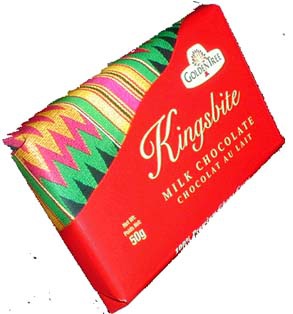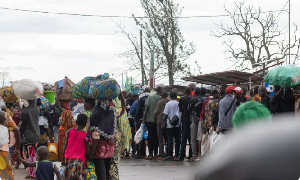Accra, Jan 9, GNA - Beginning this year, Valentine's Day, February 14, would be Ghana's National Chocolate Day, Tourism and Diasporan Relations Minister, Jake Otanka Obetsebi-Lamptey announced on Tuesday.
He told journalists that in the same manner as some media and marketing organizations had helped to firmly place the day on the Ghanaian calendar, they would be expected to champion the campaign to turn the day into chocolate day.
Mr Obetsebi-Lamptey, who is the brain behind the institution of the day, made the announcement at a media launch of the day, saying that it would be a major part of the Ghana@50 celebrations.
He said as part of the celebration of the day, a cocoa museum shall be established on Tetteh Quarshie's Cocoa farm at Mampong, where two of the original cocoa trees he planted were located. Tourists would also be taken through the various stages of cocoa planting, harvesting and processing at the Cocoa Research Institute of Ghana (CRIG) at Bonsu in the Eastern Region.
Mr Obetsebi-Lamptey said so far the various companies that produced cocoa products in the country had pledged their commitment to help to make the day a reality.
"What is left is for the media and marketing companies to come up with creative initiatives to ensure that Ghanaians make use of more chocolate products as gifts to their loved ones on February 14," he said.
He acknowledged that 93we at the Ministry do not have the capacity to lead such a campaign but we trust in the media to do it effectively".
Mr Obetsebi-Lamptey said the Ministry, in collaboration with its implementation arm, the Ghana Tourist Board (GTB), would evolve policies that would compel all local and foreign restaurants across the country to put Ghanaian dishes and chocolate based deserts on their menu. Asked if the move to compel restaurants in that manner would not create problems, he said it would be made a matter of policy, of which all the stakeholders, including the operators of restaurants and the Ghana Chefs Association would make an input.
Mr Obetsebi-Lamptey said he was worried that some players in the international community erroneously accused Ghana of engaging children in unlawful labour on large cocoa plantations, saying that 93we do not even have large plantations in Ghana and so we could not have been guilty of child labour".
He explained that about 90 per cent of Ghanaian cocoa farms were small family holding and, therefore, children who worked on those farms did so as after school household chores and not as paid jobs. Major Courage Quashigah, Minister of Health, noted that though cocoa and its products enjoyed great popularity around the world, Ghana, which could be described as the home of cocoa, had a very low cocoa consumption rate.
He expressed the hope that the institution of the day would be the final onslaught to inculcate the consumption of cocoa and chocolate products among Ghanaians.
Maj. Quashigah said Ghanaian chocolate products, which were darker, bitter with more cocoa mass, had been found to contain more calcium and magnesium, helped the artery and general vascular elasticity and, therefore, promoted more efficient blood circulation.
He urged Ghanaians to make it a habit to drink chocolate beverages every morning instead of tea and also to eat a bar of Ghana made chocolate after meals to prevent the acid content of food residue in their months from destroying their teeth and gum.
Mr Tony Fofie, Deputy Managing Director of COCOBOD, praised Mr Obetsebi-Lamptey for his initiative, saying that in the same manner as Germans had a beer festival, the French had a wine festival and even Europe as a continent celebrated a chocolate day, it was about time Ghana, the second largest cocoa producer in the world to have a National Chocolate Day.
General News of Tuesday, 9 January 2007
Source: GNA
Val's Day to be Chocolate Day in Ghana













